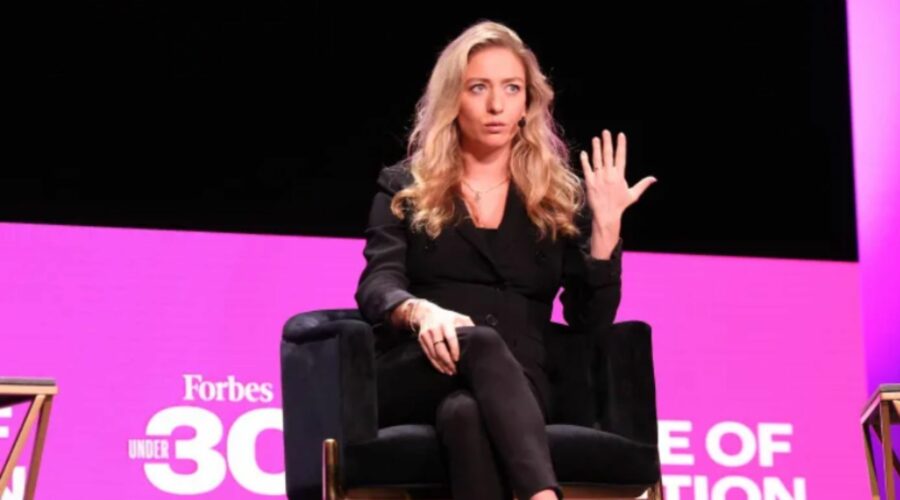The Future of Dating: How AI is Revolutionizing Relationships
Imagine this: you’ve “dated” 600 people in San Francisco without having typed a word to any of them. Instead, a busy little bot has completed the mindless ‘getting-to-know-you’ chatter on your behalf, and has told you which people you should actually get off the couch to meet.
That’s the future of dating, according to Whitney Wolfe Herd—and she’d know. Wolfe Herd is the founder and executive chair of Bumble, a meeting and networking platform that prompted women to make the first move.
While the platform has now changed this aspect of its algorithm, Wolfe Herd said the company would always keep its “North Star” in mind: “A safer, kinder digital platform for more healthy and more equitable relationships. Like any platform, Bumble is now navigating itself in a world of AI—which means rethinking how humans will interact with each other in an increasing age of chatbots.
Wolfe Herd told Bloomberg Technology Summit in San Francisco this week it could streamline the matching process. “If you want to get really out there, there is a world where your [AI] dating concierge could go and date for you with other dating concierge,” she told host Emily Chang. “Truly. And then you don’t have to talk to 600 people. It will scan all of San Francisco for you and say: ‘These are the three people you really ought to meet.’”
And forget catch-ups with friends, swapping notes on your love life—AI can be that metaphorical shoulder to cry on.
Artificial intelligence—which has seen massive amounts of investment since OpenAI disrupted the market with its ChatGPT large language model—can help coach individuals on how to date and present themselves in the best light to potential partners.
“So, for example, you could in the near future be talking to your AI dating concierge and you could share your insecurities,” Wolfe Herd explained. “‘I’ve just come out of a break-up, I’ve got commitment issues,’ and it could help you train yourself into a better way of thinking about yourself.”
“Then it could give you productive tips for communicating with other people,” she added. If these features do indeed come to Bumble in the future, they will impact the experience of millions.
Indeed, according to data from Business of Apps, while Tinder still holds the market share in the U.S. (27%) Bumble is only just behind (26%).
The company also published what it called “solid” full-year results in February.
In Q4 2023, revenue rose 13.2% to $273.6 million from $241.6 million in Q4 2022. Total paying users also increased 16.4% to 4 million, compared to 3.4 million for the same quarter a year prior.
Bot love is ‘just a fad’
The intersection between bots and romance is already ringing some alarm bells for the public. In 2021, the AI companion app Replika came under scrutiny after authorities in the U.K. saw a 19-year-old man planning to assassinate the Queen after he was encouraged by an AI girlfriend built on the app.
Experts have also expressed concerns about a perceived void of a legal or ethical framework for apps that encourage deep bonds, but are owned by companies that ultimately need to make profit.
Experts say they’ve seen emotional stress in users after companies make changes to their apps or even shut them down, the way Soulmate AI did in September.
Furthermore, an analysis of 11 romantic chatbot apps released in February by the nonprofit Mozilla Foundation found that nearly every app tested sells user data, shares it for advertising, or doesn’t provide adequate information about these points in its privacy policies.
While Bumble is a far cry from AI-generated partners, Wolfe Herd brushed off such concerns about the wider industry.
“It’s a little freaky,” she said. “But that’s a fad. I mean listen I’m sure there are people out there that might form friendships with some form of AI and that’s fine. But our focus with AI is to help create more healthy and equitable relationships.”
“Always putting women in the driver’s seat—not to put men down—but to actually recalibrate the way we all treat each other.”
Conclusion:
As technology advances, it’s clear that artificial intelligence is playing an increasingly significant role in reshaping the dating landscape. Platforms like Bumble are at the forefront of this revolution, aiming to create safer, kinder, and more equitable spaces for users to form meaningful connections. While concerns about AI’s influence on relationships persist, the potential benefits, such as streamlining the matching process and providing personalized coaching, cannot be ignored. Whether AI will truly become the future of dating remains to be seen, but for now, it’s clear that it’s here to stay and could significantly impact how we approach romantic relationships.
Subscribe to our newsletter and get always the latest AI news!



